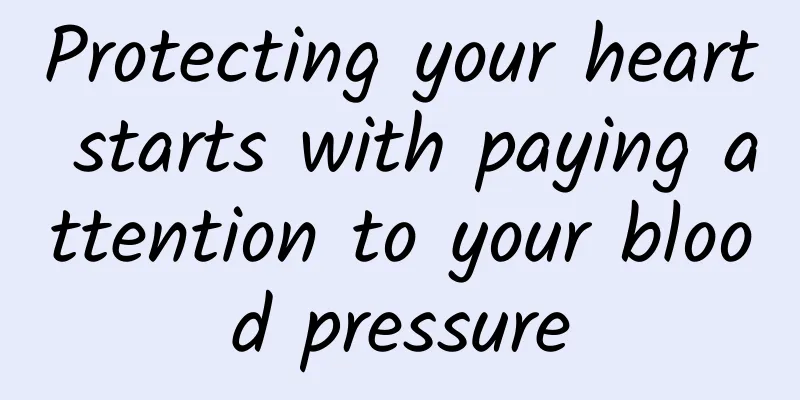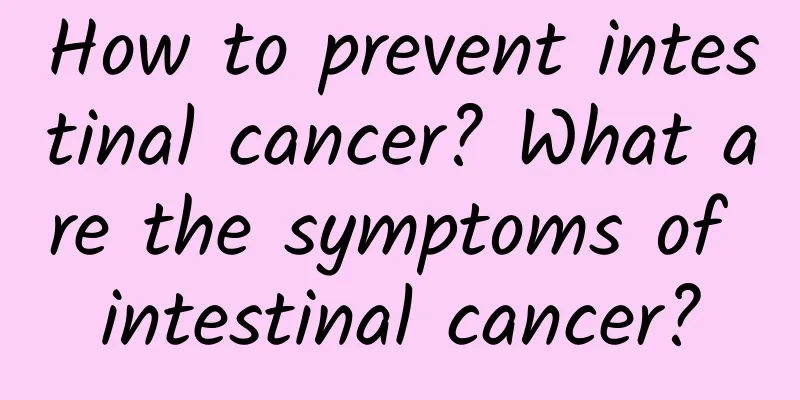Protecting your heart starts with paying attention to your blood pressure

|
Author: Liu Machao Xuanwu Hospital, Capital Medical University Reviewer: Xia Jinggang, Chief Physician, Xuanwu Hospital, Capital Medical University The heart is the most "hard-working" organ in the body. It works hard every day. If the heart works hard for a long time, it will get sick. Once the heart is sick, the whole body will be affected, and the consequences are often very serious. The scope of heart disease is very broad. It is generally believed that hypertension is an important influencing factor of heart disease. The main causes of common heart diseases such as acute myocardial infarction and heart failure are all related to hypertension. Protecting the heart should start with paying attention to blood pressure. Controlling blood pressure is the first factor in preventing heart disease. So, let us learn how to protect the heart and how to control blood pressure! 1. What is hypertension? Hypertension is a cardiovascular syndrome with increased systemic arterial pressure as the main clinical manifestation. It can be divided into primary hypertension and secondary hypertension. Primary hypertension, also known as hypertension, is the most important risk factor for cardiovascular and cerebrovascular diseases. It often coexists with other cardiovascular risk factors and can damage the structure and function of important organs, such as the heart, brain, and kidneys, and eventually lead to the failure of these organs. What are the diagnostic criteria for hypertension? Current research evidence suggests that ideal blood pressure is systolic blood pressure <120 mmHg and diastolic blood pressure <80 mmHg. In China, we believe that adults over 18 years old who do not use antihypertensive drugs and have their blood pressure measured in the clinic three times on different days with a systolic blood pressure ≥140 mmHg and/or a diastolic blood pressure ≥90 mmHg are diagnosed with hypertension. Many clinical studies have confirmed that the cardiovascular benefits of treating hypertension at this time will far outweigh the risks of treatment. 3. How to detect hypertension in time Many patients with hypertension often experience symptoms of dizziness and headaches, but most patients are missed due to the lack of characteristic symptoms. Therefore, we can monitor blood pressure regularly in the following ways. 1. Use an upper arm electronic blood pressure monitor at home. 2. Have your blood pressure measured/monitored by a doctor in a hospital/physical examination center. 3. Monitor blood pressure regularly (recommended once a month). Regular blood pressure monitoring can detect hypertension. 4. In some areas of the hospital, it is also recommended to use the method of "unattended clinic automatic blood pressure measurement" in the hospital, that is, the patient uses an automatic blood pressure monitor to measure blood pressure alone in the unattended clinic to reduce or exclude white coat hypertension (false blood pressure increase caused by nervousness after seeing the doctor, sympathetic nerve excitement, etc.). Figure 1 Copyright image, no permission to reprint 4. Long-term high blood pressure will quietly make your heart "fat" According to statistics, 43% of hypertensive patients have left ventricular hypertrophy. If hypertensive patients cannot control their blood pressure level well for a long time, peripheral vascular resistance will increase, and the pressure on the heart to transport blood to the peripheral blood vessels will be much greater than when the blood pressure is normal, which will increase the work of the myocardium. In the long run, just like people exercising their muscles, the heart will also "exercise" myocardial cells to hypertrophy and myocardial fiber proliferation under this "high-intensity" training, causing the myocardium to become hypertrophic, and the myocardial contractility to decrease, resulting in reduced myocardial blood supply and ischemia, affecting heart function, and significantly increasing the probability of heart failure, arrhythmia, stroke and sudden death. Figure 2 Copyright image, no permission to reprint 5. If you suffer from high blood pressure, how can you detect changes in your heart in time? Clinically, the diagnosis of left ventricular hypertrophy caused by hypertension mainly relies on echocardiography, electrocardiogram, and X-ray examinations. Echocardiography can detect changes in heart damage at an early stage by measuring indicators such as heart size, ventricular wall thickness, heart end-systolic diameter, and cardiac ejection fraction. Therefore, patients with hypertension must undergo regular physical examinations and echocardiography. 6. How to protect your heart when you suffer from high blood pressure? In the early stages of hypertension, organ damage is not serious, which makes many people relax their vigilance and ignore the more serious damage it will cause later. If you want to avoid the damage that hypertension causes to the heart, the fundamental measure is to control abnormal blood pressure. 1. Go to the doctor regularly, take medicine regularly, and reduce the burden on the heart Currently, antihypertensive drugs used in clinical practice can be taken for a long time if there are no obvious contraindications. Patients with different types of hypertension should strictly follow the doctor's instructions to take the antihypertensive drugs recommended by the doctor on a regular basis and in a fixed amount to maintain stable blood pressure and correct the hemodynamic abnormalities caused by increased blood pressure. Commonly used antihypertensive drugs in clinical practice are divided into five categories: (1) Angiotensin-converting enzyme inhibitors (ACEI): “XXpril” class of drugs. (2) Angiotensin II receptor blocker (ARB): “XXsartan” class of drugs. (3) β-blockers: “XXlol” type drugs. (4) Diuretics: One type is potassium-excreting diuretics (furosemide), and the other type is potassium-sparing diuretics (spironolactone). (5) Calcium channel blockers (CCB): “XXdipine” class of drugs. In addition, there are many compound antihypertensive drugs currently available clinically. The combination of two or more antihypertensive drugs has fewer side effects and a stronger antihypertensive effect. They must be taken strictly according to the doctor's instructions and follow up if any discomfort occurs. 2. Limit sodium, increase potassium, and control blood pressure through diet Controlling sodium (salt) is something that people with high blood pressure need to pay special attention to. The World Health Organization and my country's guidelines recommend that people should not eat more than 5 grams of salt per day, but the average salt intake per person in my country is more than 9 grams per day. By controlling salt intake, blood pressure can also be lowered. If an average person eats 1 gram less salt per day, systolic blood pressure can be reduced by an average of about 1.2 mmHg, the risk of hypertensive heart disease can be reduced by about 4%, and the risk of stroke can be reduced by about 6%. Hypertensive patients can choose low-sodium salt. Potassium can be said to be the natural nemesis of the blood pressure-raising sodium in table salt. Potassium can prompt the kidneys to metabolize more sodium. According to the dietary nutrient reference intake published by the Chinese Nutrition Society, in order to prevent chronic diseases such as hypertension, you need to consume 3,600 mg of potassium every day. Dark green leafy vegetables, fruits, potatoes, and whole grains are all good sources of potassium supplements, especially dark green leafy vegetables. Figure 3 Copyright image, no permission to reprint 3. After hypertension is diagnosed, a comprehensive examination should be completed Once hypertension is diagnosed, patients need to monitor their blood pressure levels more comprehensively to reflect a more objective and realistic blood pressure situation. In addition to measuring blood pressure in the hospital, they also need to self-measure their blood pressure at home and, if necessary, perform 24-hour dynamic blood pressure monitoring. High or low blood pressure is no small matter. Blood pressure levels must reach normal levels under comprehensive, scientific and precise monitoring to effectively protect the heart and prevent heart "injury". References [1] Ge Junbo, Xu Yongjian, Wang Chen. Internal Medicine[M]. 9th edition. Beijing: People's Medical Publishing House, 2018. [2] Chinese Nutrition Society. Collection of Dietary Guidelines for Chinese Residents (2022)[M]. Beijing: People's Medical Publishing House, 2022. [3]TAN M, HE F, MORRIS JK, et al. Reducing daily salt intake in China by 1 g could prevent almost 9 million cardiovascular events by 2030: a modeling study[J]. BMJ Nutr Prev Health,2022,5(2):164-170. |
>>: All medicines are poisonous. Which medicines are most harmful to the kidneys?
Recommend
The leucorrhea during ovulation is like yogurt
During the ovulation period, women have stronger ...
How long does it take to get menstruation after painless abortion?
In today's society, more and more people are ...
[Medical Q&A] Did you know that pus in the ear may be a sign of otitis media?
Planner: Chinese Medical Association Reviewer: Gu...
Is it possible to have sex during menstruation?
There are many taboos for female friends during m...
What are the symptoms of uterine disease?
Uterine disease is one of the common diseases amo...
How to reduce swelling of labia majora during pregnancy
If the labia is irritated or infected with inflam...
What are the symptoms of breast nodular disease?
Female friends may often have breast pain. Since ...
How to use moxibustion to treat scanty menstruation? How to use moxibustion to treat breast pain before menstruation?
The dog days are the hottest time of the year. Du...
Recipes for girls' health preservation
In fact, female friends nowadays do not take good...
Can I pick out dirt from my belly button during pregnancy?
If there is dirt in the belly button after pregna...
Beware! Don’t reheat these 6 foods. Throw them away if you can’t finish them.
This article was reviewed by Pa Li Ze, chief phys...
Support the Chinese team, keep supporting and feel happy! Sports psychology says this
The Chinese men's table tennis team won anoth...
[Medical Q&A] Is bedwetting a disease in children?
Author: Zeng Yue Shengjing Hospital Affiliated to...
Post-cesarean scar hyperplasia
Scars are disastrous for women, but there are alw...
Side effects of women wearing rings
The IUD can effectively prevent women from gettin...









